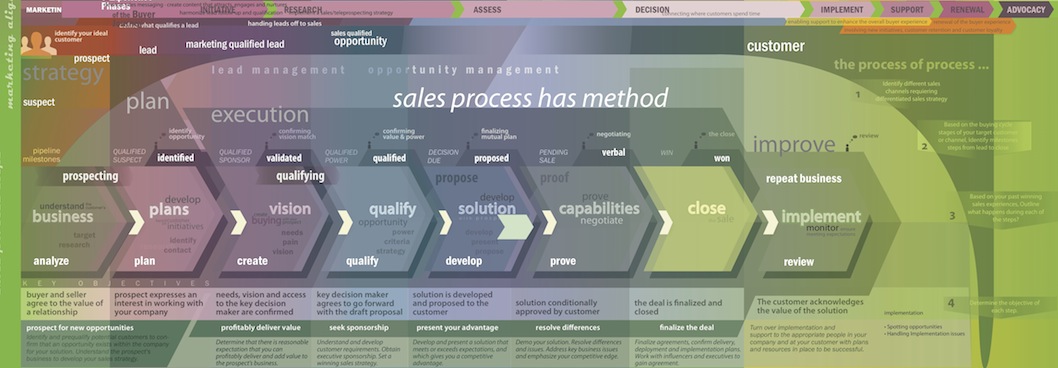Sales requires processes as projects
In recent years, the “project” has become the predominant format for conducting business activities or activities within businesses. And it is also now established practice to glorify even routine activities by dubbing them as projects. Projects structure our world of business and work and render it understandable and measurable. These are good and appropriate aspects of projects.
However, projects also suggest that a certain business process has a clearly defined beginning and an equally clearly defined end, the point in time when everyone is done with what they were supposed to do and can head home contented. That is exactly why it would be wrong to talk about IT projects. The term “IT project” creates the impression that IT support for strategies and processes has a clearly defined end. That is not the case, however IT is an ongoing process. Read more →








